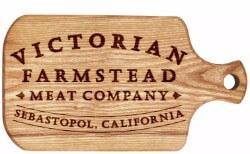One of the great challenges I face as a business owner is employee compensation. Our business doesn’t fare well with your standard hourly wage model. That is certainly an important component, but we had to get a little creative. I have lost employees that felt they were underpaid and over worked, and they were! But as a fledgling business owner, I didn’t have the money to pay them what they were worth. Now that we have a few years under our belt, we are starting to figure it out, and it fits this thread of barter.
The first thing we have learned is that you won’t survive here without a passion for what we do. Farmer’s Markets are tough to work and we pay on commission. That means that when you see us at the Saratoga Farmers Market, we are in the middle of a ten hour day just for that market: 4 hours driving, 2 hours set up and tear down and 4 hours of sales. Notice nowhere did I say load or unload? That’s a whole other job. At 10% commission, an employee is going to make $150-$200 on a good day or $15-20/hour. Not bad, not great. But what about a bad day? Not many of us want to work 10 hours for $50.
So how do we obtain and retain good people when that’s all we can pay? We get creative! We have implemented a program where our farmers market workers get an allowance of meat to trade with other vendors as part of their compensation. If they are good at it they can take $25 worth of meat and turn it into $50-75 worth of other foods they can feed their family with. This is such an important concept that it is actually a test I give them during their probation period. I need to know they have a basic understanding of barter so they can maximize this piece of their compensation, otherwise the perceived value of their pay won’t be high enough and we both lose. I want my employees to value not only their pay, but the ability to feed themselves and their families though their job. They are now effectively earning an extra $50-75 per market and it is costing me about $10. Barter wins again! But more importantly, we are creating a company culture that thrives on creativity, internal and external relationships. Pretty tough to get a good trade with the apple vendor if you don’t have a good relationship with them to start with. And internally, it’s awesome to know that you have a good enough relationship with your co-worker that you can ask them to barter on your behalf if there is something you need from their market. This thought process came about from a post by a good friend Michael J. Here is the post:
CFO to CEO: what happens if we invest in our people and they leave us?
CEO: what happens if we don’t and they stay?
I’m printing it out for my office wall with the following quote “Money may make the world go round, but relationships are driving this ship” – Adam Parks
Thanks, Plugger!
